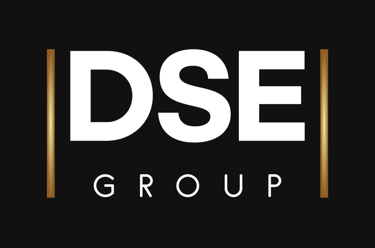5 Game-Changing AI Tools That Small Businesses Can Actually Afford in 2025
Discover 5 affordable AI tools under $30/month that help small businesses automate tasks, boost productivity, and compete with larger companies in 2025.
AI SOLUTIONS BLOG
DSE Group FZCO
8/1/20255 min read


5 Game-Changing AI Tools That Small Businesses Can Actually Afford in 2025
Published: August 2, 2025
Running a small or medium-sized business often feels like juggling flaming torches while riding a unicycle. You're managing customers, inventory, marketing, finances, and somehow trying to stay competitive with companies that have ten times your budget. But here's the thing: AI isn't just for Fortune 500 companies anymore.
The artificial intelligence revolution has democratized powerful tools that were once exclusive to tech giants. Research from McKinsey shows that generative AI has the potential to generate $2.6 trillion to $4.4 trillion in value across industries, and small businesses are perfectly positioned to capture their share of this productivity boom.
The best part? You don't need a computer science degree or a massive budget to get started. Most of these tools cost less than your monthly coffee budget and can be implemented faster than you can say "machine learning."
Let's explore five AI tools that are transforming how small businesses operate, compete, and grow.
1. ChatGPT Plus: Your AI-Powered Content and Customer Service Assistant
What it actually does: Think of ChatGPT as your incredibly knowledgeable intern who never sleeps, never gets tired, and can write anything from product descriptions to customer emails in seconds.
Perfect for: Real estate agents, e-commerce stores, service businesses, restaurants, consultants
Real-world application: A real estate agent we know uses ChatGPT to create personalized property descriptions for each listing. Instead of spending hours crafting unique descriptions, she now inputs the property details and gets compelling, SEO-optimized copy in under five minutes. She's reclaimed 10-15 hours per week that she now spends on actual client meetings.
The money side: ChatGPT Plus costs $20 per month for individual users, with a free version available for basic needs. Compare that to hiring a part-time copywriter at $15/hour for just 10 hours a month, and you're already saving $130 monthly.
Pro tip: Don't just ask ChatGPT to "write something." Be specific. Try: "Write a 200-word property description for a 3-bedroom family home in suburban Denver, emphasizing the updated kitchen and proximity to schools. Make it warm and inviting for families with young children."
2. Zapier: The Silent Productivity Multiplier
What it actually does: Zapier connects different software tools so they can talk to each other automatically. It's like having a digital assistant that moves information between your apps without you lifting a finger.
Perfect for: Any business using multiple software tools (which is pretty much everyone)
Real-world application: An automotive repair shop connects their website contact form to their scheduling software through Zapier. When someone requests an appointment online, Zapier automatically creates a calendar event, sends a confirmation email to the customer, and adds their information to the customer database. What used to take 10 minutes of manual work now happens instantly.
The money side: Zapier starts free for basic automations, with paid plans beginning around $20/month for more complex workflows. One client eliminated 40 hours of monthly data entry, which at $15/hour saves them $600 monthly.
Pro tip: Start simple. Connect your Google Forms to your email marketing tool or CRM. Once you see the magic happen, you'll find dozens of other processes to automate.
3. HubSpot's AI-Powered CRM: Marketing Intelligence That Actually Makes Sense
What it actually does: HubSpot uses AI to analyze your customer data and predict which leads are most likely to buy, what products they might want, and when they're ready to purchase.
Perfect for: E-commerce businesses, B2B services, retail stores with customer databases
Real-world application: An online clothing retailer uses HubSpot's AI to segment customers based on browsing behavior and purchase history. The system automatically sends personalized email campaigns with product recommendations. Instead of blast emails to everyone, they're sending targeted messages that convert 40% better than their old approach.
The money side: HubSpot's CRM is free, with AI-powered features starting around $20/month. The AI lead scoring alone helps businesses focus on the highest-value prospects first.
Pro tip: Use the lead scoring feature to identify your hottest prospects. Focus your sales energy on leads with scores above 70, and you'll see your conversion rates climb.
4. Canva Magic Studio: Professional Design Without the Designer
What it actually does: Canva's AI features can generate custom graphics, remove backgrounds, create entire brand packages, and even animate your designs—all with simple text prompts.
Perfect for: Restaurants, retail stores, service businesses, anyone who needs marketing materials
Real-world application: A local bakery uses Canva's AI to create fresh social media content daily. They simply type "Create an Instagram post showcasing our chocolate croissants with warm morning lighting" and get professional-looking graphics in seconds. They've increased their social media engagement by 35% since they started posting consistently.
The money side: Canva starts free, with Pro features at $15/month. Compare that to hiring a graphic designer for even one project ($200-500), and the ROI is immediate.
Pro tip: Use Canva's Brand Kit feature to maintain consistent colors, fonts, and style across all your marketing materials. Consistency builds trust and recognition.
5. QuickBooks AI: Your Financial Crystal Ball
What it actually does: QuickBooks uses AI to analyze your financial patterns and predict future cash flow, identify potential problems before they happen, and suggest ways to improve your financial health.
Perfect for: Any business that deals with fluctuating income or seasonal variations
Real-world application: A landscaping company uses QuickBooks AI to predict seasonal cash flow patterns. The system warned them about a potential cash shortage during their slow winter months, allowing them to secure a line of credit before they needed it. They avoided what could have been a $50,000 shortfall.
The money side: QuickBooks AI features are included in plans starting around $30/month. The early warning system alone can save you from costly financial emergencies.
Pro tip: Connect your bank accounts for real-time insights. The more data the AI has, the more accurate its predictions become.
The Reality Check: What to Expect
Let's be honest about implementation. You won't see overnight transformation, and there will be a learning curve. Most businesses see meaningful improvements within 30-60 days of consistent use.
The key is starting small. Pick one tool that addresses your biggest pain point. Maybe it's the hours you spend writing product descriptions (ChatGPT), or the tedious data entry that eats your evenings (Zapier). Master one tool before moving to the next.
Studies suggest that businesses implementing AI tools strategically can see 20-40% efficiency gains within the first year. But remember, these tools enhance human capabilities—they don't replace the relationships, creativity, and expertise that make your business unique.
Getting Started: Your 30-Day Implementation Plan
Week 1: Choose one tool that addresses your most time-consuming task. Set up the free version and experiment.
Week 2: Create three specific use cases for your chosen tool. Document what works and what doesn't.
Week 3: Upgrade to paid features if needed. Train your team on the basics.
Week 4: Measure your time savings and plan integration with additional tools.
The AI revolution isn't coming—it's here. And for the first time in business history, the smallest companies have access to the same intelligent tools as their biggest competitors. The question isn't whether you can afford to implement AI tools; it's whether you can afford not to.
Your competitors are already using these tools. Your customers expect the speed and personalization they enable. The businesses that embrace AI now will have a significant advantage over those that wait.
Ready to implement AI in your business but not sure where to start? Our team specializes in helping small and medium businesses identify the right AI tools and create custom implementation strategies. Contact us for a free consultation to discuss how AI can transform your specific business challenges.
Topics covered: Small business AI implementation, automation tools, productivity solutions, and digital transformation strategies for SMBs.


